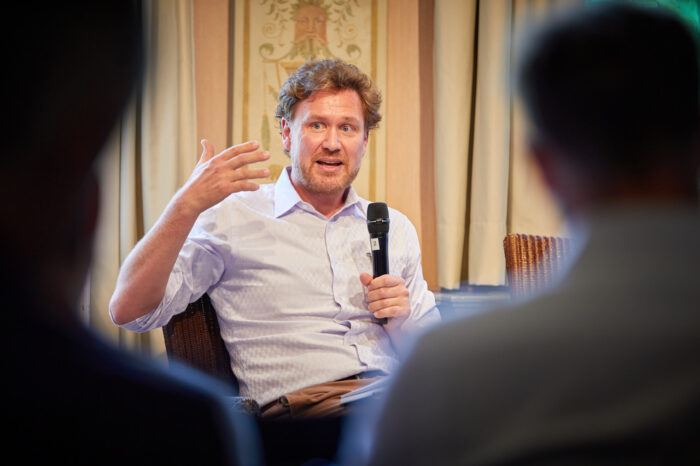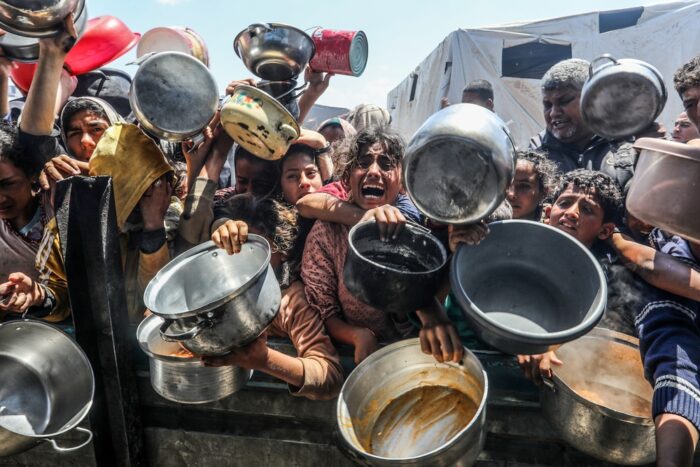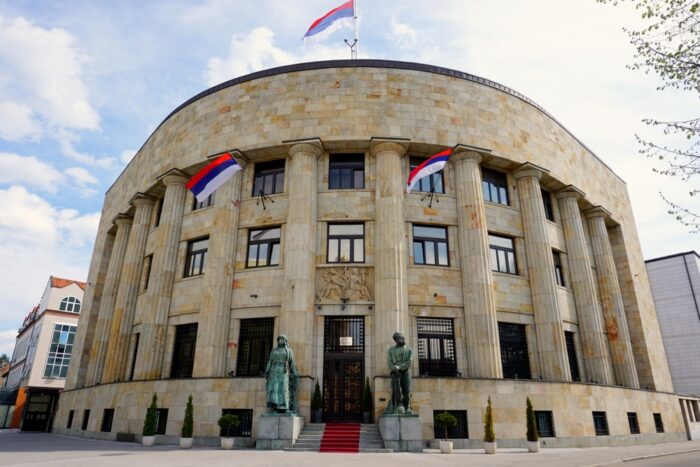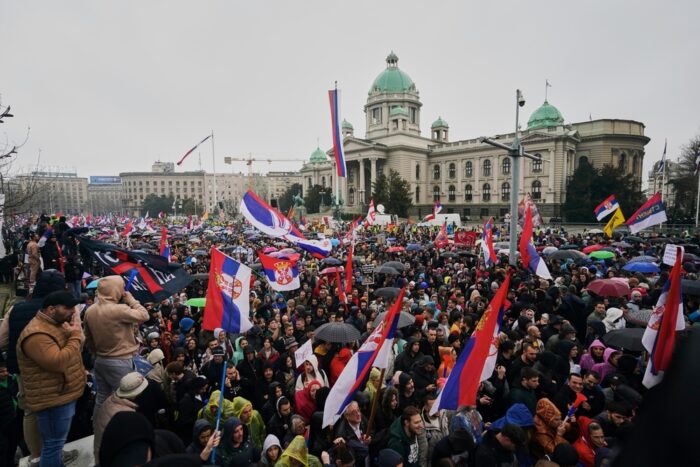The Progressive Post
Less is more: time to re-purpose the European Political Community?

Two years have passed since Emmanuel Macron proposed establishing a European Political Community (EPC). Yet the idea, promising as it was, remains fraught with strategic inconsistencies. The fourth and fifth summits of the EPC, hosted by the United Kingdom on 18 July and Hungary on 7 November, will be a call on re-assessing the EPC’s raison d’être and ambitions. What a progressive Europe needs today, is not another catch-all potpourri of summit diplomacy, it is the cohesive and pioneering engagement of a (smaller) group of states putting their weight in reaffirming the fundamentals of Europe’s security order.
The inception of the European Political Community (EPC) in 2022 was a direct response to the full-scale invasion of Ukraine by the Russian Federation. The initial idea was to “organise Europe from a political perspective and with a broader scope than that of the European Union”. The EPC, in this sense, was to constitute a geopolitical front against Russia and, at the same time, reaffirm the fundamentals of European security. It is no mistake that the EPC, originally, was to bring together only “democratic European nations that subscribe to our shared core values”. Yet this ambition has not materialised. Two years after, where do we stand?
The first meeting of the EPC took place in Prague on 6 October 2022, with 44 participating states. The initial plans to establish a value-based community had to be diluted to enable the participation of European autocrats, self-interested strongmen and duplicitous leaders, such as Ilham Aliyev of Azerbaijan, Recep Tayyip Erdogan of Turkey, Alexandar Vučić of Serbia and Viktor Orbán of Hungary. Their inclusion on an equal footing was to signal geopolitical unity “from Reykjavik to Baku”, according to Charles Michel. Instead, it deprived the EPC of its ability to bolster strategic intimacy among pro-democracy leaders and hindered the advancement of a common progressive agenda. The initiative took off in Prague, but it appeared quickly that it would require a leading hand to consolidate it. France, alas, refrained from assuming this role, as it feared its leadership would stir up suspicion in the East that the EPC might end up replacing the EU’s enlargement policy.
The second summit of the EPC took place on 1 June 2023 in the Castle of Mimi, near Chișinău. It convened 45 state representatives as well as the leaders of EU institutions. Their participation was meant to put flesh on the EPC’s bones against the backdrop of war. Why, after all, should the EPC not resort to EU policy instruments and funding, if these are available anyway? Why should the EU not take on a structuring role at the centre of the EPC and accordingly reorganise its fanning relationship with the states at its periphery? The EU’s struggle with its enlargement policy in the Western Balkans, the decay of the Eastern Partnership, post-Brexit turbulences with the UK, and the difficult relationship with Switzerland constituted opportunities for the EU to step into the EPC format, even if it meant disrupting its political, intergovernmental nature.
With this, the ambition of the EPC shifted from advancing a political grand vision (which the EU lacks) to merely supporting technical cooperation (which the EU already does). A series of high-level discussions since then has been held on security (for example, countering hybrid threats and disinformation campaigns), energy (for example, investing in energy security and green energy), connectivity (for example, boosting P2P, digital, transport and economic connectivity) and migration (both internal and external). The suppression of roaming fees for some countries and the conclusion of migration agreements, especially with the UK, are among the few substantive accomplishments of the EPC to date. However, they do not point to a distinctive utility of the EPC, as technical cooperation is commonly advanced through more specialised and institutionalised (EU) frameworks or channels. Roaming fees, for instance, had already been suppressed for the Western Balkans in the framework of the Berlin Process.
The added value of the EPC, beyond these technical arrangements, was claimed to be its informality and agility. Leaders, symbolically meeting behind the imposing walls of historical castles, personally and discussing current issues at will. These meetings are opportunities to exchange, and sometimes to deploy concerted efforts at defusing bilateral tensions. For instance, the representatives of France, Germany and EU institutions have initiated talks with Armenia and Azerbaijan or Kosovo and Serbia, alongside initiatives piloted by the EU. But their efforts have not paid off so far. In that respect, the third summit of Grenada in October 2023 ended in embarrassing disappointment, when leaders refused to meet, or some did not even attend. To what extent can the EPC’s informality contribute to European security, in the absence of a founding declaration committing the participating states to some sort of reciprocal obligations?
The EPC summit of Blenheim, in the UK, with its British focus put almost only on migration, is not expected to give the EPC a new impetus. It has been prepared in a hurry, with general elections in the foreground. As to the summit of November 2024, hosted by the Hungarian presidency of the Council, it will be a tribune for Viktor Orbán’s authoritarian and pro-Russian policy, with dramatic transatlantic resonance, if Donald Trump gets re-elected. Surely, it will put pro-democracy leaders in an inconvenient spot and showcase what the EPC should not be.
In the absence of a common declaration stating its purpose and underlying principles, the EPC is at the mercy of host countries, including autocratic ones. In this context, it would be tempting to ditch the EPC altogether and work within existing frameworks. A better alternative, however, would be to establish the EPC on a firmer base: a value-based community of European nations joining forces against the rise of violent authoritarianism across Europe and organising themselves as pro-democracy bridgeheads in the fabric of Europe’s new security order.
In this fight, less is more. The venture could start with a small group of EU and non-EU participating states drafting an EPC founding declaration that does not sacrifice democracy on the altar of geopolitical security, informality and inclusiveness. This declaration should reflect the highest standards when it comes to democratic aspirations, non-aggression and territorial integrity, even if it means that the declaration would not, at first, be adopted by all countries. No preferential treatment should be granted to EU member states or EU accession candidates. The idea is to establish a common base for like-minded countries to close ranks as they address key security challenges across the continent.
The signatories of this declaration would constitute the members of the EPC – others could be observers. The members convene on this basis. They would provide guidance, set the agenda of the summits, and establish the rules governing the EPC. This would turn the EPC into a framework in which progressive alliances are being forged and tested, an incubator of progressive ideas.
Photo Credits: Pool PEUE/ Villar López




